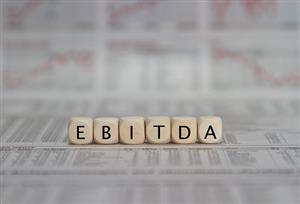
If you are having a company valuation done, then the term EBITDA will come up at some point during the appraisal. EBITDA is one of the many factors that an appraiser looks at when it comes to how to determine the value of a company. Learn what this acronym really means and how it affects your company's value now to better understand the appraisal report.
What is EBITDA?
EBITDA refers to earnings before interest, taxes, depreciation, and amortization. Appraisers use this term as shorthand to refer to the basic business profitability before these other elements are taken out. Since EBITDA looks at just earnings, it gives appraisers a quick way to tell the financial health of the business during a business valuation. EBITDA does not represent the real cash value of the business, but it can help the appraiser determine what amount of debt the business is carrying and how easily the business can pay this off.
EBITDA is not the only indicator of your company's value - and, on its own, it is not a very useful figure. Once an appraiser has calculated your company's EBITDA, they account for depreciation and amortization to get a more accurate picture of your business's cash flow.
Once all these calculations have been made, an appraiser has a representation of your company valuation in terms of multiples of EBITDA. In business appraisals, the appraiser might say that your company has a worth or value of "5 times EBITDA" if your company is worth $5,000,000 and your EBITDA is $1,000,000.
The stronger your financial health, growth estimates, and market dominance, the more attractive it is to potential buyers thus multiples are typically driven higher. For this reason, it can be helpful to get an understanding of your EBITDA if you anticipate selling your business down the road. By making business adjustments that improve your EBITDA, you can improve your company's financial health and command a better selling price when you are ready to sell.
Considerations for using EBITDA
While you can calculate EBITDA yourself, taking proper adjustments is tricky. A business appraiser knows how to work with EBITDA to account for intangible variables. An appraiser can also make sure that one-time expenses and other items are accounted for properly. For example, acceptable tax practices, like writing off one-time repairs, can actually hurt EBITDA. These are not calculations the average business owner can make on their own.
Since EBITDA calculations and adjustments can be confusing, it is a good idea to work with a business appraiser to calculate the value of a company. Too often, business owners can incorrectly apply a concept like EBITDA and end up with an incomplete value of the company as a result. In a worst case scenario, this could affect the business sales price by causing an owner to accept a lowball offer or sabotage a deal if the owner thinks the business is worth more than it really is. Proceed with a business deal with confidence by hiring an appraiser to determine EBITDA as part of a business appraisal.